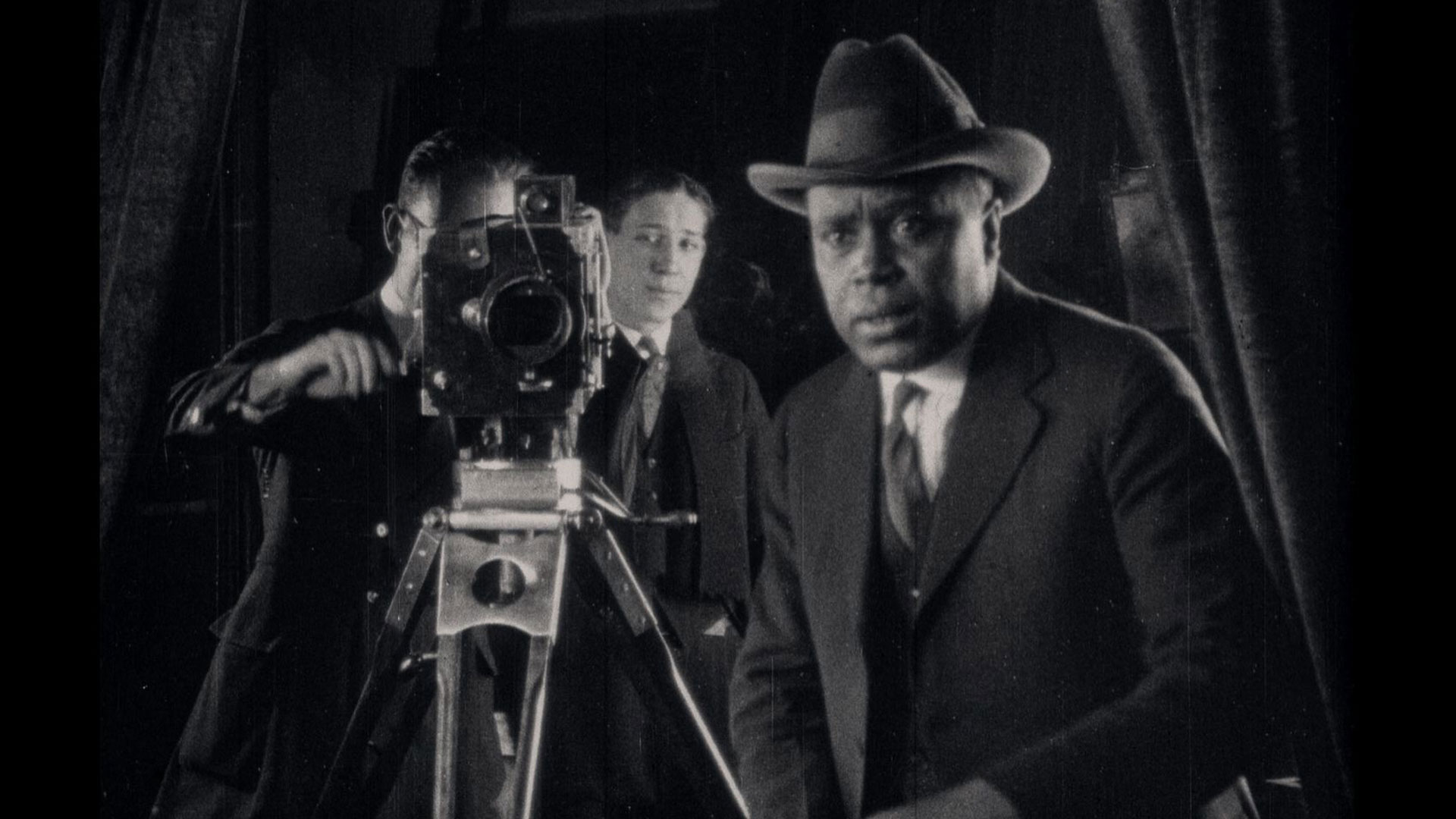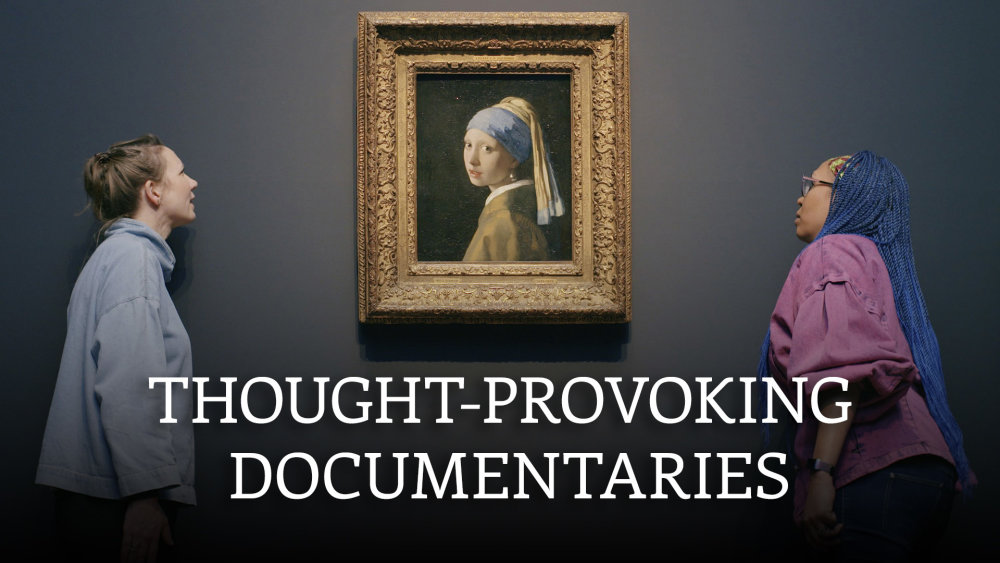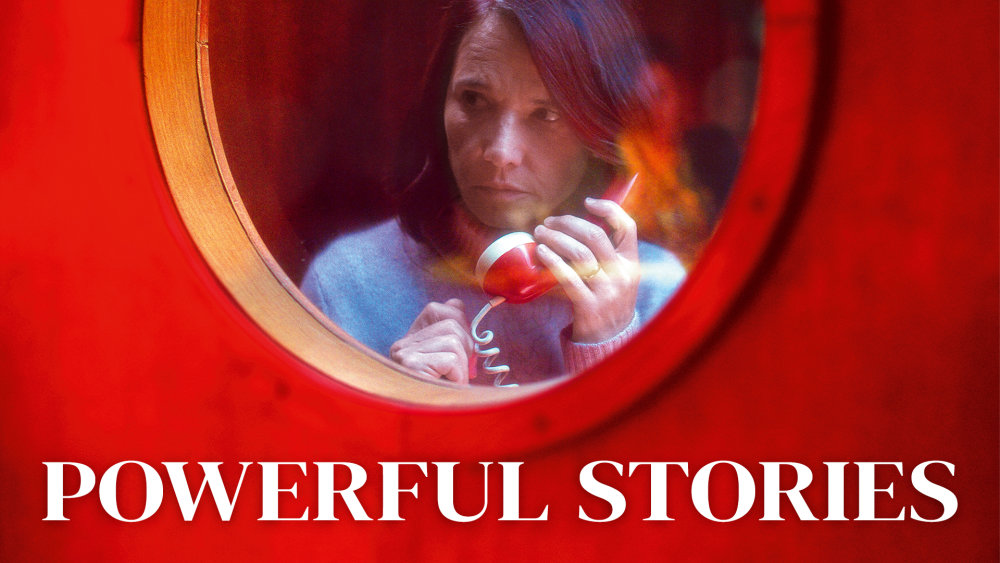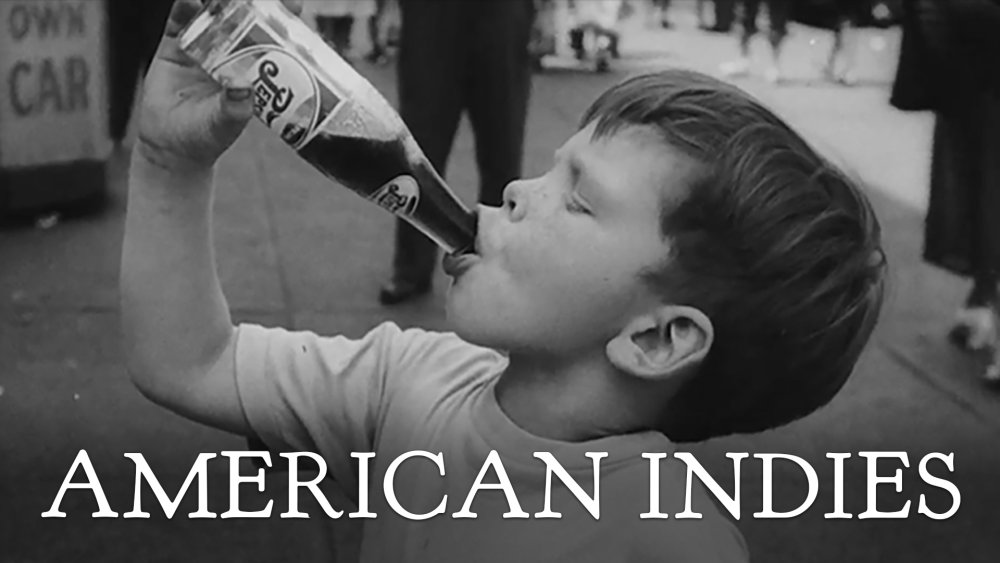
Why You Need to Know Oscar Micheaux, the “Most Important Black Filmmaker. Period.”

Oscar Micheaux may be best known for being the first major African-American filmmaker, but he was many things. According to hip-hop legend Chuck D, Micheaux is “the originator of DIY,” while director Amma Asante equates him to “groundbreaking, freedom, and possibilities.” Actor and playwright Kwame Kwei-Armah says, “Oscar Micheaux means you can do it, no matter your environment, no matter what your time.” But it’s Jacqueline Stewart, former president of the Academy Museum of Motion Pictures, who offers the most definitive bio: “Oscar Micheaux is the most important Black filmmaker who ever lived. Period.”
These spoken testimonials open Francesco Zippel's Oscar Micheaux: The Superhero of Black Filmmaking, which chronicles the life and work of Micheaux and his lasting influence. Featuring interviews with the likes of Morgan Freeman, John Singleton, Melvin Van Peebles, and Nicole London, as well as archival footage and clips from Micheaux’s films, the documentary illustrates how the director built a career in independent filmmaking that led to more than 40 features and short films during the silent period and golden era.
But Micheaux’s films weren’t just mere entertainment. By breaking through racial and economic barriers, Micheaux opened the door for future Black storytellers, challenged the mainstream narrative on race, and allowed African-American audiences to see themselves on the screen in authentic and multidimensional portrayals.
You can stream Oscar Micheaux: The Superhero of Black Filmmaking and restored versions of Micheaux’s films Murder in Harlem, Birthright, and Body and Soul on Kino Film Collection now. And check out the Oscar Micheaux: The Complete Collection boxset on Blu-ray from Kino Classics.
 Still from The Symbol of the Unconquered (1920)
Still from The Symbol of the Unconquered (1920)
In celebration of Black History Month, we’re spotlighting the filmmaker’s groundbreaking body of work and enduring legacy with eight facts you should know about Oscar Micheaux.
He Learned Valuable Skills From Holding Many Different Jobs in His Early Life
Micheaux was born in Metropolis, Illinois, in 1884. As a young man, he held a variety of different jobs, from marketing to working in the stockyards to owning his own shoeshining business. But the job that changed the course of his life was working as a pullman porter on the American railroads. Frequently interacting with passengers, Micheaux was able to pick up real business acumen, form lucrative connections, and save up enough money for his next chapter.
He Was a Successful Novelist Before Becoming a Filmmaker
After moving to South Dakota to become a homesteader, Micheaux was inspired to start writing novels about African-American life on the Rosebud. In 1913, he was able to secure investors for his first book, The Conquest: The Story of a Negro Pioneer, and get 1,000 copies of it printed. His 1917 novel, The Homesteader, drew the attention of African-American filmmakers and brothers George and Noble Johnson, who wanted to buy the rights to the novel, but Micheaux had his own vision for translating the story to film. Thus, his film career was launched.
 Still from Within Our Gates (1920)
Still from Within Our Gates (1920)
He Challenged The Birth of a Nation
In 1915, D. W. Griffith released The Birth of a Nation, a landmark film that was praised for its groundbreaking technical execution but is widely known to this day as the most explicitly racist propaganda film ever made. The film portrays Black Americans in an absurdly unfavorable light while glorifying lynchings, leading to a revival of the Ku Klux Klan. In response, Micheaux made the film Within Our Gates as a rebuttal, revealing the violence of living under white supremacy and realistically reflecting American race relations in the early 20th century.
“Within Our Gates was a film that tried to celebrate black Americans,” says film producer Nicole London in Oscar Micheaux: The Superhero of Black Filmmaking. “Especially the Black middle class. That, I think, really turned the narrative of The Birth of a Nation on its head.”
He Helped Discover Paul Robeson and Evelyn Preer
Micheaux helped discover two African-American icons of early cinema: Paul Robeson and Evelyn Preer. Already accomplished as a star athlete and the first Black football player at Rutgers University, Robeson made his big-screen debut in Micheaux’s Body and Soul (1925) and went on to star in more than a dozen films.
As for Evelyn Preer, she was something of a muse to Micheaux. After starring in his first film, The Homesteader, the director went on to cast Preer in 10 more of his films. Preer had an undeniable star quality that earned her the moniker “The First Lady of the Screen” to Black audiences.
 Still from Murder in Harlem (1935)
Still from Murder in Harlem (1935)
He Allowed Black Audiences to See Themselves Authentically on Screen
Throughout his career, Micheaux made “race films,” which featured all-Black cast and crews and were made for Black audiences. The way he portrayed Black characters with dignity and humanity and the complexities of African-American life was an antidote to the prevalent racist stereotypes and caricatures of the Jim Crow era. Micheaux’s films allowed Black audiences to see themselves authentically reflected on the screen, which helped fuel his success as a filmmaker within the community.
Stewart comments in the documentary: “Cinema has, I think [Micheaux] recognized, the ability to mirror. So, when audiences would look at other Black characters on the screen, which was rare at the time, that could give them a different kind of visual sense of what they could be. It's a medium that allows someone to reflect upon themselves, their own identities and their own possibilities.”
He Was a Business Whiz
Micheaux wasn’t just a visionary behind the camera; he was also a savvy businessman off the set. Even in his publishing days, he was able to secure investors and sell an impressive number of books by going door to door. When he started making films, he was a natural at distribution. He would bring his films to show at theaters and churches, making connections and creating a Black film community along the way. On top of that, while Micheaux was making distribution deals, he was also securing funding for his next film. Actor Morgan Freeman describes Micheaux’s can-do attitude in Oscar Micheaux: The Superhero of Black Filmmaking: “If you think Oscar Micheaux, you think: put your head down and go forward, you'll get it done.”
 Still from Underworld (1937)
Still from Underworld (1937)
He Was One of the Few Black Filmmakers to Successfully Transition to Talkies
1927 saw the release of The Jazz Singer, the first film with syncronized dialogue, thus transitioning cinema from the silent period into the talking era. Talkies proved to be more technically challenging and expensive and many filmmakers, especially Black filmmakers, could not keep up with the new standard. Micheaux, however, with his business acumen, was one of the few who continued to find funding for his films and was able to keep making films for another two decades.
He Influenced Some of the Most Iconic Modern-Day Filmmakers
It’s undeniable that Micheaux made history during his lifetime, but his influence has proven to be timeless. Through the decades, some of the most iconic Black filmmakers have cited Micheaux as a seminal influence on their work and career.
Spike Lee (Do the Right Thing, The BlacKkKlansman) has said, “Oscar Micheaux has been my idol. He inspired me to do my first film.” John Singleton (Boyz n the Hood, Poetic Justice) and Melvin Van Peebles (Sweet Sweetback’s Baadasssss Song, Watermelon Man) have also credited Micheaux as a major influence.
Two filmmakers also appear in Oscar Micheaux: The Superhero of Black Filmmaking—Amma Asante and Kevin Willmott. Both are grateful to Micheaux for paving the way for Black storytellers like themselves, with Asante crediting Micheaux for “the possibility for me to exist.” But it’s Willmott who sums up Micheaux more definitively. In response to Metropolis, Illinois erecting a statue of Superman as a symbol of their town, Willmott says, “Oscar Micheaux is the real Superman, because he didn't allow kryptonite to stop him—he didn't allow anything to stop him. They threw everything they had at him and he still was able to get the job done.”










